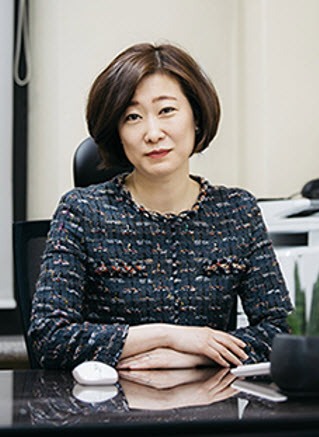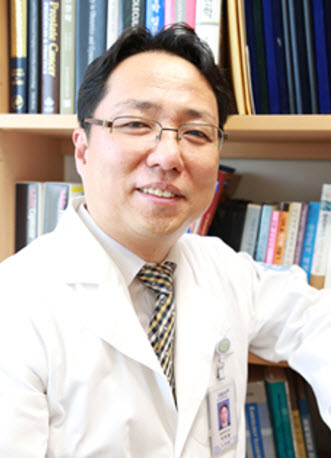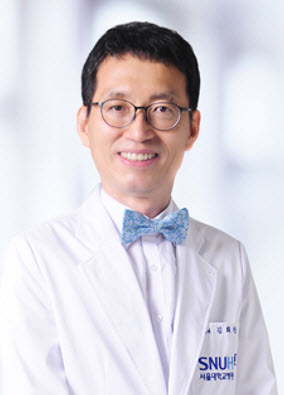This spring, Seoul National University adds three new academic departments to its list of graduate programs, with the objective of meeting social needs and promoting deeper research. The Department of Clinical Nursing Science and the Department of Health Science and Technology are entities created under temporary contracts with outside sponsors. The Department of Medical Device Industry, an SNU venture has also been newly created. Here we introduce the new departments and their department chairs, who share their goal.
Department of Clinical Nursing Science: Laying the cornerstone for nursing studies

Professor Koh Chin-Kang
Professor Koh Chin-Kang of the College of Nursing has taken on the role of chair for the Department of Clinical Nursing Science. She has conducted research on the nursing of critically ill patients while rethinking the role of the clinical nurse specialist (CNS) within the healthcare system. The newly created department, which is to accept fifteen master’s students each year, is in line with Professor Koh’s goals in that it addresses the need for a training curriculum for nurse specialists, a feature our school has been missing. “This is not the first time the need for educating nurse specialists has been brought up, but there were difficulties due to our graduate school being mostly research-oriented,” Koh says. With a curriculum for nurse specialists finally a reality, she is doing her part for the advancement of nursing specialist training in Korea.
The Department of Clinical Nursing Science aims to nurture nursing specialists in the fields of critical treatment and tumor treatment. “Nursing specialists provide a direct service for patients and their families who require special care. They also help nurses effectively practice evidence-based medicine.” She underlined the importance of nursing specialists, emphasizing that they enable medical institutions to introduce programs for enhancing nursing service quality.” In addition, she shared her hopes for enhancing patient safety and quality of life as nursing specialists in critical treatment and tumor treatment provide professional education to other nurses.
Department of Health Science and Technology: Leading the fourth industrial revolution in medicine

Professor Lee Hak Jong
The Department of Health Science and Technology is a PhD program in the Graduate School of Convergence Science and Technology (GSCST). It has been founded on the grounds that the fourth industrial revolution requires proactive approaches within the field of medicine. Newly appointed department chair, Professor Lee Hak Jong of the Department of Radiology says “The Department of Health Science and Technology has been created to study medical data and apply new scientific technology in its interpretation and use.” He mentions the possibility of future research conducted in this department developing to convergent studies that bridge medical science and engineering. Given that the fourth industrial revolution will bring an era of data dominance to all fields, Lee plans to conduct data-driven research in line with this trend. He also says that the department will deal with a variety of technology that can be used in the medical field, ranging from the Internet of Things to gene data to new models for clinical studies.
The Department of Health Science and Technology is a collaboration between SNU and the SNU Bundang Hospital intended to facilitate cooperation between the domains of academic research and clinical practice. Once students finish their two years of study, they are referred to SNU Bundang Hospital to conduct research in related fields. Lee considers the superb research environment to be the department’s strongest point, as students can come and go between school and the hospital to learn through hands-on experience. He also emphasizes that researchers of various fields from Bundang Hospital and GSCST can conduct empirical research on healthcare, and looks forward to having many talented students join the well-equipped department.
Department of Medical Device Industry: Convergent studies in the age of digital healthcare

Professor Kim Hee Chan
The Department of Medical Device Industry has been newly established as a master’s program in the College of Medicine. It aims to foster future talent equipped with integrated practical knowledge needed in the medical device industry. Professor Kim Hee Chan of the Department of Biomedical Engineering says the medical device industry is one of the few industries that has consistently shown high-speed growth, but compared to the remarkable achievements we have made in other medical fields, Korea’s medical device industry has yet to become world-class. He emphasizes the importance of the new department in achieving this goal, pointing out that training top-level personnel to lead the medical device industry is a must for SNU.
The Department of Medical Device Industry will bring together faculty from the Basic Medical Science branch (including Biomedical Engineering), professionals in the field of law and policy, and experts in business administration in order to cultivate elite talent with professional interdisciplinary knowledge. Professor Kim expresses his pride in the new program, saying that it will be led by clinical medics and biomedical engineering professors of the highest level. The department proposes an innovative curriculum involving practicums and joint thesis supervision, while also cooperating with major medical device companies to provide students with practical skills required in the field. Kim says he wishes to educate future experts, and also has a personal dream of launching a medical device startup with students. He voices his aspiration as the department chair: “I hope these efforts eventually lead to Korea becoming one of the leading nations in the medical device sector.”
Original Source: https://now.snu.ac.kr/category/3/41
Written by Hyunjoo Lee, SNU English Editor, legohj1001@snu.ac.kr
Reviewed by Professor Travis Smith, Department of Asian Languages and Civilizations, tlsmith@snu.ac.kr

